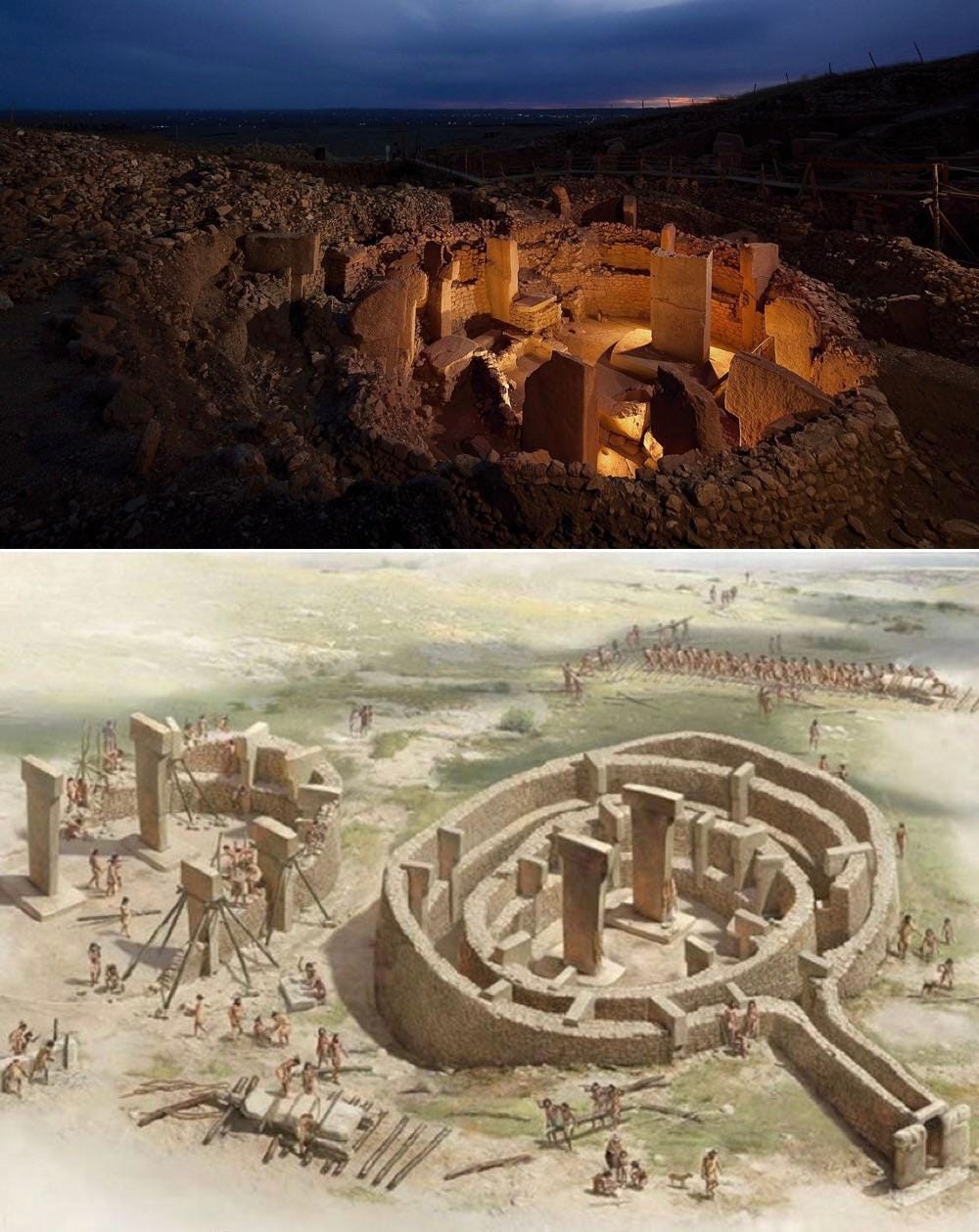Is Civilization Itself a Byproduct of Climate Change?
Göbekli Tepe and the dialectics of climate determinism
It's 1994, and German archaeologist Klaus Schmidt is trudging through the barren hills of southeastern Turkey. The seemingly unremarkable landscape has been silently guarding its secret for eleven millennia. The locals call it "Potbelly Hill," a name that would soon prove to be the archaeological understatement of the century.
Then, jutting from the ancient dust like the fossilized vertebrae of some long-extinct cosmic beast: stone. Not just any stones—massive T-shaped monoliths, hauntingly anthropomorphic, carved with images of fanged predators and headless human figures. Twenty feet tall. Twenty tons each. Arranged in perfect circles by people who supposedly didn't have the intellectual capacity to create such precision or the social organization to mobilize such labor. The archeological equivalent of a Molotov cocktail thrown at the academic establishment was about to detonate.
Welcome to Göbekli Tepe. Carbon dated to a casual 11,500 years ago, this monumental landmark predates Stonehenge by 6,000 years and the invention of agriculture by at least a millennium. The archaeological community was shocked because this site required thousands of workers, sophisticated engineering knowledge, and complex social organization at a time when humans were supposedly still running around with spears chasing gazelles and picking berries like absolute peasants. How could a primitive society build things at such a scale?
Turns out we had it all backwards. These supposedly primitive hunter-gatherers were carving intricate reliefs of dangerous animals, erecting massive stone circles arranged in complex astronomical patterns, and generally acting very un-primitive without the agricultural revolution that was supposed to precede all this complexity.
So what was going on? What if everything we've been force-fed about human development is just a comforting bedtime story? What if the most fundamental assumption about our history—that agriculture enabled civilization—is actually backwards?
For decades, the story went like this: humans invented agriculture, which created food surpluses, which allowed people to stop wandering around and build permanent settlements, which eventually led to cities, writing, and Karen demanding to speak to the manager at Starbucks. Agriculture was the prerequisite for civilization—full stop.





